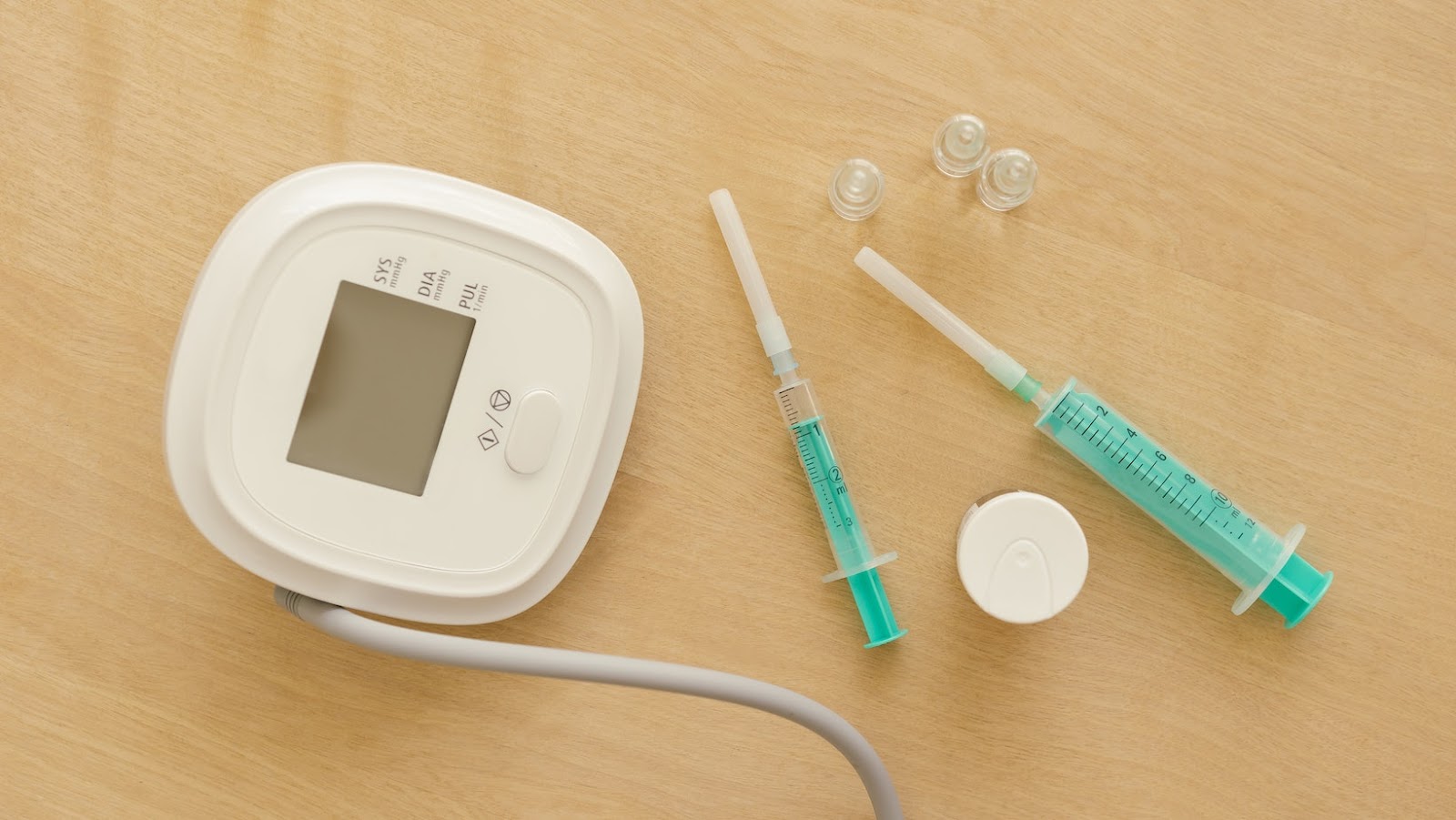
In this blog post, we will explore the importance of regulating your blood pressure to avoid future complications. Blood pressure is a measure of the force that blood exerts against the walls of your arteries as it flows through your body. It is an essential aspect of overall health, as high blood pressure, also known as hypertension, can lead to severe health issues such as heart disease, stroke, and kidney disease.
Monitoring and regulating your blood pressure is crucial for maintaining your overall health and well-being. It is essential to understand the different types of blood pressure readings and how they relate to your health. By managing your blood pressure, you can significantly reduce your risk of developing serious health conditions and enjoy a longer, healthier life.
Additionally, high blood pressure can also affect sexual health and cause Erectile Dysfunction (ED). ED is a condition where a man has difficulty achieving or maintaining an erection during sexual activity. We will explore the link between high blood pressure and ED and how managing blood pressure can help prevent this complication.
What is Blood Pressure
Blood pressure is the measurement of the force exerted by the blood against the walls of the arteries as it flows through the body. The measurement of blood pressure is recorded in two numbers, systolic and diastolic pressure, which are measured in millimeters of mercury (mmHg). The systolic pressure is the pressure when the heart contracts, and the diastolic pressure is the pressure when the heart is relaxed.
A healthy blood pressure reading is generally considered to be around 120/80 mmHg. When the blood pressure exceeds this level, it is considered high, and it can lead to various health complications. High blood pressure can cause damage to the arteries, heart, and other organs. It can cause the heart to work harder than normal, leading to an increased risk of heart disease and stroke.
There are different types of blood pressure readings, such as ambulatory blood pressure monitoring (ABPM), which is a method used to monitor blood pressure over 24 hours. This method provides more accurate and comprehensive readings than a single blood pressure measurement. It is essential to monitor blood pressure regularly and to understand what the readings mean to prevent health complications.
The Importance of Regulating Blood Pressure
The importance of regulating blood pressure cannot be overstated. High blood pressure, if left uncontrolled, can cause damage to the heart, arteries, kidneys, and other organs. Over time, this damage can lead to serious health complications such as heart disease, stroke, and kidney failure.

Managing blood pressure through lifestyle changes and medication can help reduce the risk of developing these complications. Lifestyle changes such as regular exercise, a healthy diet, and stress management techniques can help lower blood pressure. These changes can also help maintain a healthy weight, which is an essential factor in regulating blood pressure.
Medications may be necessary to control high blood pressure, and they work by relaxing the blood vessels, reducing the amount of fluid in the blood, or slowing the heartbeat. It is important to work with a healthcare provider to determine the best medication and dosage to manage blood pressure effectively.
Regular blood pressure monitoring is also critical in managing blood pressure. It is recommended to have blood pressure checked at least once a year, or more frequently if there is a history of high blood pressure in the family or other risk factors present.
Complications of High Blood Pressure
High blood pressure can lead to several complications, including cardiovascular disease, kidney disease, and stroke. One lesser-known complication of high blood pressure is Erectile Dysfunction (ED). ED is a condition that affects men and makes it difficult for them to achieve or maintain an erection during sexual activity. High blood pressure can cause damage to the blood vessels in the penis, making it difficult for blood to flow properly and resulting in ED. Other factors that can contribute to ED include smoking, obesity, and diabetes, all of which can be linked to high blood pressure.

It is essential to treat high blood pressure to prevent the development of ED. Lifestyle changes such as regular exercise, a healthy diet, and stress management techniques can help reduce the risk of developing ED. Medications such as Viagra, Cialis, and Levitra are also commonly used to treat ED. These medications work by increasing blood flow to the penis, making it easier to achieve and maintain an erection. There are also OTC meds for ED, such as BlueChew, which contains the active ingredients in Viagra and Cialis. However, it is essential to talk to a healthcare provider before using any OTC medication for ED, as they can interact with other medications or have other health risks.
Managing Blood Pressure and Preventing Complications
Managing blood pressure is crucial for preventing complications such as heart disease, stroke, and kidney disease. There are various methods for managing blood pressure, including lifestyle changes and medication.
Lifestyle changes such as regular exercise, a healthy diet, and stress management techniques can help lower blood pressure. Exercise is particularly important in managing blood pressure as it helps improve blood flow and strengthens the heart, reducing the workload on the heart. A healthy diet that is low in sodium and high in fruits, vegetables, and whole grains can also help lower blood pressure.
Medications may also be necessary to control high blood pressure. These medications work by relaxing the blood vessels, reducing the amount of fluid in the blood, or slowing the heartbeat. It is important to work with a healthcare provider to determine the best medication and dosage to manage blood pressure effectively.
Regular blood pressure monitoring is also critical in managing blood pressure. It is recommended to check blood pressure every year, or more frequently if there is a history of high blood pressure in the family or other risk factors present.
Conclusion
In conclusion, it is vital to regulate blood pressure to avoid future complications such as heart disease, stroke, and kidney disease. Blood pressure is a measure of the force that blood exerts against the walls of the arteries as it flows through the body, and high blood pressure can cause damage to the organs and blood vessels.
To manage blood pressure effectively, it is important to make lifestyle changes such as regular exercise, a healthy diet, and stress management techniques. Medications may also be necessary to control high blood pressure, and it is essential to work with a healthcare provider to determine the best course of treatment.
Overall, by regulating blood pressure, individuals can significantly reduce their risk of developing serious health conditions and enjoy a longer, healthier life. It is essential to take control of your health by monitoring blood pressure regularly, making lifestyle changes, and seeking treatment when necessary.























